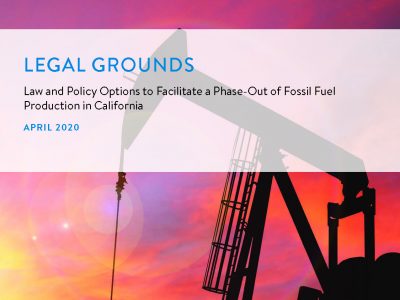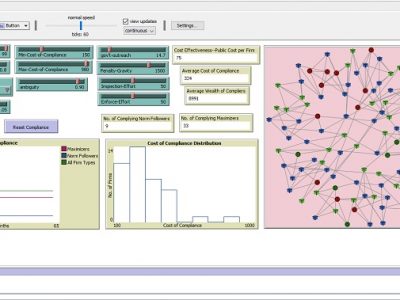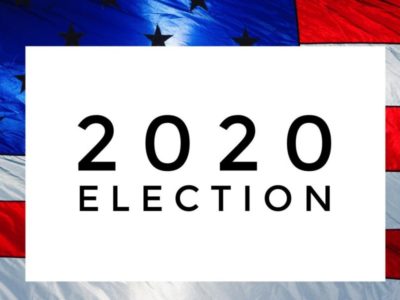Regulatory Policy
Coastal Beaches, Public Access & the Pandemic
Important Legal & Policy Considerations in Closing Beaches to Protect Public Health
As part of America’s steadily growing restiveness over state and local shelter-in-place directives, the issue of government-mandated public beach closures has recently emerged as a particularly contentious issue. It’s especially prominent now, given that many coastal states are experiencing their first heat waves of 2020. Many Americans are increasingly weary of and angry over public …
Continue reading “Coastal Beaches, Public Access & the Pandemic”
CONTINUE READINGConservatives versus Lockdowns
Conservatives versus Lockdowns
Spurred on by conservative groups, protesters are demanding that their states go back to business as usual. This sentiment isn’t limited to the kinds of hotheads who insist on congregating in public during an epidemic, or even to conservatives like Betsy DeVos who help to fund these groups and promote their protests. It also includes …
Continue reading “Conservatives versus Lockdowns”
CONTINUE READINGRoadmap For California To Phase Out Oil & Gas Production
New CLEE report released today with legal options for state policy makers & free May 12th webinar
California is the seventh-largest oil producing state in the country, with a fossil fuel industry that is responsible for billions of dollars in state and local revenue and other economic activity each year. Yet continued oil and gas production contrasts with the state’s aggressive climate mitigation policies, while creating significant air and water pollution, particularly …
Continue reading “Roadmap For California To Phase Out Oil & Gas Production”
CONTINUE READINGHere Today, Gone to Maui
U.S. Supreme Court Issues Environment-Friendly Ruling in Major Clean Water Act Case
This week the U.S. Supreme Court issued its decision in the Court’s most important environmental law case of the current Term: County of Maui v. Hawaii Wildlife Fund. In a somewhat surprising ruling, the justices rejected both sides’ argument over the scope of government authority to regulate water pollution discharges under the federal Clean Water …
Continue reading “Here Today, Gone to Maui”
CONTINUE READINGWhat Can We Learn from Modeling a Pandemic?
Individual-based modeling offers untapped opportunities for policymakers and researchers
With the emergence of the corona virus, modeling – the science of representing processes and systems for purpose of analysis—has been at the center of debate how to respond to this public health crisis. Experts and non-experts alike follow the latest modeling predictions, and federal and state public health policies are grounded, at least in …
Continue reading “What Can We Learn from Modeling a Pandemic?”
CONTINUE READINGJust a Bit More on Earth Day(s) Past and Present
Kudos to the New York Times for Its Stellar Earth Day Coverage–Today & 50 Years Ago
This week, several of my Legal Planet colleagues and I have been posting and musing about Earth Days past, present and future. As I write this, Earth Day 50 is winding down after a multitude of (largely online) demonstrations and celebrations across the globe. One long-term, disturbing development over the past couple of decades has …
Continue reading “Just a Bit More on Earth Day(s) Past and Present”
CONTINUE READINGLos Angeles Air Quality in the Time of Covid-19
Headlines from across the world have trumpeted one of the few benefits of the Covid-19 shutdown: cleaner air quality. Los Angeles has starred in those headlines, with many reporters calling attention to the fact that the region had some of the cleanest air in the world during a period in April. EPA data also confirm …
Continue reading “Los Angeles Air Quality in the Time of Covid-19”
CONTINUE READINGGuest Blogger Sharon Jacobs: The Coronavirus and Our Energy System
Uncertainty is the New Normal
The novel coronavirus’s impact on our energy system is (understandably) not top of mind for most people right now. But the pandemic and its economic fallout have important implications for some of the most pressing energy issues today including the green transition, energy justice, and even the fate of bankrupt investor-owned utility PG&E in Northern …
Continue reading “Guest Blogger Sharon Jacobs: The Coronavirus and Our Energy System”
CONTINUE READINGDeferred Planetary Maintenance
It’s easy to put off long-term problems when there’s a crisis. Much too easy, actually.
Long-term problems get short shrift in a crisis. That’s true of infrastructure repair; it’s also true of climate change. Like deferred maintenance, climate change just gets bigger the longer it’s put off. I often see the fruits of deferred maintenance on the Berkeley campus. Building conditions are a huge problem at Berkeley. Whenever there’s a …
Continue reading “Deferred Planetary Maintenance”
CONTINUE READINGSeven Months to Election Day (and Counting)
You may have forgotten, but the clock is still ticking.
You may not have been focused on this, but there will be a Presidential election seven months from today. The stakes are enormous for environmental law. In fact, those stakes can be measured in megatons of carbon. There’s no question about Trump’s approach to environmental regulation. As of the beginning of this year, ninety-five environmental rollbacks …
Continue reading “Seven Months to Election Day (and Counting)”
CONTINUE READING













